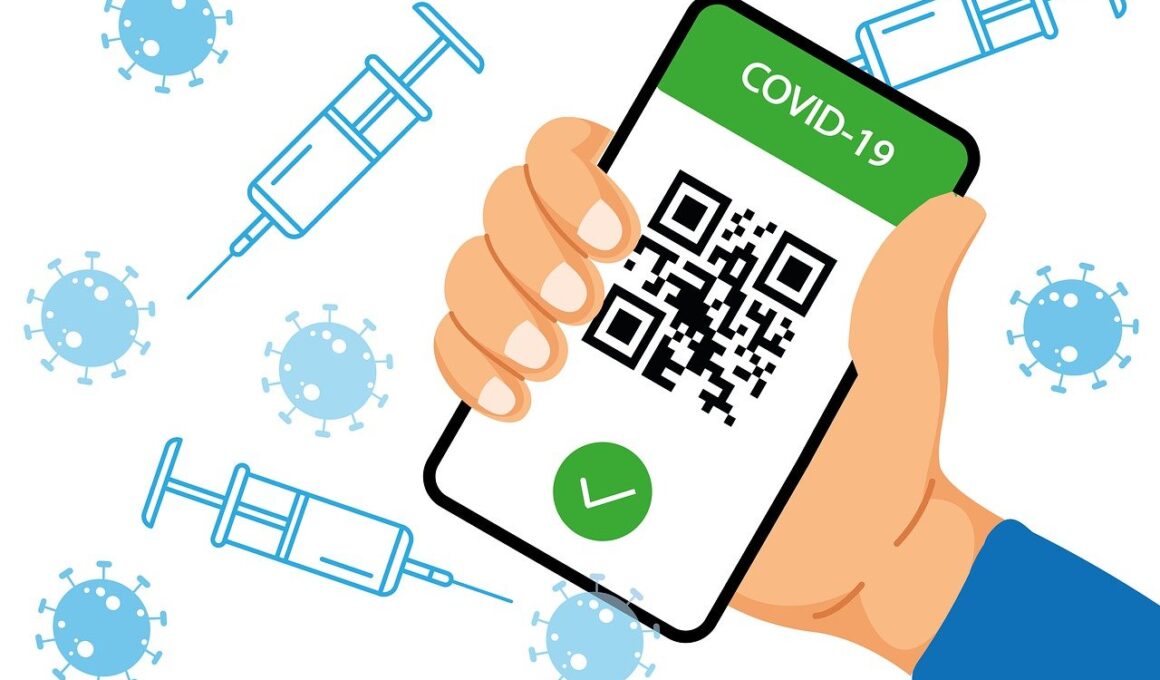Consequences of Non-Compliance with Cat Vaccination Laws
Cat vaccination laws exist to protect public health. Certain diseases can be transmitted from cats to humans, so vaccinations are essential. For instance, rabies is a fatal viral disease affecting mammals and can be transmitted by an unvaccinated cat. Failure to comply with vaccination laws may lead to severe consequences, including fines and legal ramifications. Owners may be liable in cases where a vaccinated cat causes harm. Many municipalities implement laws requiring vaccinations as a precautionary measure against widespread outbreaks. These laws also ensure that community-wide responsibility is maintained, especially in densely populated areas where cats mingle regularly. Non-compliance can cause larger health issues, such as zoonotic diseases. Unvaccinated cats may endanger their household and surrounding community. Vaccination is not just a personal choice; it is a community health issue. Moreover, pet owners risk facing liabilities if their unvaccinated cat bites someone. Legal actions taken against owners can lead to considerable legal fees alongside emotional distress. Therefore, understanding and complying with local vaccination laws significantly benefit both individual pet owners and society at large.
Ignoring local cat vaccination laws can result in serious repercussions. Pet owners who choose to evade these regulations may experience hefty fines, which vary by jurisdiction. Not only does the absence of vaccinations pose health risks to the pet itself, but it also creates dangers for other animals and people. Legislators create these rules to achieve herd immunity within populations of pets to prevent outbreaks of contagious diseases like feline distemper or feline leukemia. Owners often fail to realize that legal consequences extend beyond fines. In some cases, animal control agencies could confiscate unvaccinated cats, leading to a loss of ownership. Additionally, insurance may not cover incidents related to unvaccinated pets. Furthermore, public perception may negatively shift against owners of unvaccinated cats, limiting future opportunities to adopt or foster other pets. Another aspect of non-compliance includes restrictions on participation in pet-related activities such as shows or training classes. Cat fanciers often require proof of vaccinations for entry, highlighting the importance of compliance. Therefore, being proactive with vaccinations can prevent unwanted legal entanglements and promote responsible pet ownership.
Impact on Public Health
Non-compliance with cat vaccination laws can significantly impact public health. When cats are allowed to remain unvaccinated, they pose health risks to the population surrounding them. For instance, rabies outbreaks are frequent in areas where vaccination adherence is low. Unvaccinated cats might contract and spread diseases that could endanger both animal and human lives. Public health officials emphasize the importance of vaccination as a core method for containing and managing infectious diseases. Communities with high vaccination compliance rates often see a decrease in outbreaks of zoonotic infections. It’s crucial for pet owners to recognize that their animals can serve as vectors for diseases that readily transmit to humans. Moreover, a single unvaccinated cat could lead to an entire outbreak, affecting other cats, wild animals, and even people. The ripple effects on the healthcare system can be immense, straining resources. Vaccination helps limit unnecessary hospital visits and prevents fatalities associated with rabies. Vaccinated cats not only protect their health but also assist in safeguarding the health of local communities. Ultimately, responsible pet ownership includes understanding and adhering to vaccination laws.
Legal Liabilities and Responsibilities surrounding cat vaccinations are paramount for pet owners to know. If an owner fails to vaccinate their cat and an incident occurs, they may face significant legal repercussions. Liability claims can stem from dog bites, car accidents, or even illness resulting from a non-compliant cat. Courts often hold pet owners accountable, particularly if an injury can be linked to the cat’s vaccination status. Moreover, exposing another person to an unvaccinated cat’s illness can result in increased liability. Pet insurance companies may deny claims if vaccinations are not up to date as required by local laws. Legal professionals also warn that managing a non-compliant cat in a civil lawsuit poses serious challenges. Owners could find themselves facing increased legal fees and penalties on top of any judgments made against them. More severely, neglecting laws can risk criminal prosecution in environments where failure to vaccinate is considered a misdemeanor. Keeping animal rights and public safety in mind, vaccination remains a primary responsibility, fundamentally equal to ensuring they receive adequate food and shelter.
Community Responsibility
Beyond personal liability, pet owners have a shared responsibility within their communities. Each owner must contribute to a culture of proactive health for all pets. Unvaccinated cats increase the likelihood of disease transmission through cat gatherings, shelters, or community parks. Adhering to vaccination laws showcases accountability to fellow cat owners and non-pet owners alike. Communities thrive when pet-related interactions are safe and regulated. Some neighborhoods have established vaccination clinics to help increase compliance, demonstrating collective effort towards better public health. However, when owners neglect vaccination, these community initiatives can falter. The ripple effect of individual decisions impacts social responsibility overall. Local veterinary clinics also play a crucial role in promoting compliance with vaccination laws. By educating pet owners about the legal and health benefits of vaccinations, these clinics foster a sense of importance regarding routine health checks. Sharing stories of positive health outcomes can motivate others to comply. Strengthening community responsibility involves unified efforts to raise awareness about health concerns linked to non-compliance with vaccination. Thus, every individual has an important role in maintaining the safety and wellbeing of their neighborhood.
Furthermore, non-compliance may create difficulties in obtaining housing for pet owners. Many rental agreements and real estate listings specify pet policies, including the requirement for vaccinations. Landlords frequently require proof of vaccination to mitigate risks within their properties. A property can suffer from potential liability issues if an unvaccinated cat transmits disease. Consequently, pet owners may find housing options severely limited, pushing them into unfavorable living conditions. This issue is compounded in urban areas where rental space is limited and highly competitive. Maintaining proof of vaccination supports housing stability and promotes a smoother lifestyle. Additionally, owning an unvaccinated cat may discourage travel compatibility. Some boarding facilities or pet-friendly accommodations require vaccination records for reservations. Planning vacations could become increasingly difficult if owning an unvaccinated cat is an obstacle. Therefore, embracing the responsibility of keeping pets vaccinated enriches personal convenience and affects a broader capacity for housing and travel. Simple compliance with local vaccination laws can help expand possibilities for pet owners significantly and allow them the freedom to make choices regarding their living spaces and experiences.
Final Thoughts on Compliance
In summary, understanding and adhering to cat vaccination laws is vital for multiple reasons. Non-compliance can lead to severe consequences, impacting not only the owner but also the community at large. Legal ramifications arise through municipal fines, potential liability for diseases, and even public health threats. Furthermore, being compliant can open opportunities for housing and traveling without difficulties. Pet ownership is a significant commitment intertwined with responsibilities that extend beyond personal space. The societal implications of vaccination compliance bolster community health while reducing risks of widespread outbreaks. Pet owners should engage in conversations about the benefits of vaccinations with fellow pet owners, veterinary professionals, and community leaders. Creating awareness and fostering a culture of compliance can assist in mitigating public health risks related to non-compliance. Pet owners must act responsibly, safeguarding not just their own pets but also ensuring community health. An empowered, informed, and compliant pet-owning community fosters better animal welfare and public safety. Ultimately, vaccination is essential, and compliance is a shared responsibility that facilitates better lives for pets and their owners.
In conclusion, the consequences of non-compliance with cat vaccination laws are wide-ranging and significant. It impacts public health, legal liabilities, community responsibility, and even housing and travel opportunities for pet owners. By adhering to local vaccination laws, pet owners not only protect their own cats but contribute to the well-being of the entire community. Responsible pet ownership must include an understanding of the importance of vaccinations. As laws evolve, pet owners must stay informed about regulations affecting their cats. The proactive approach of vaccination can prevent many issues and ensure that cats remain healthy and safe. By promoting due diligence in vaccination efforts, communities can reduce the risks associated with unvaccinated pets. It’s every owner’s responsibility to comply, adhere to local laws, and bridge gaps in knowledge regarding vaccination importance. Following these guidelines leads to healthier pets and peace of mind for pet owners. Ultimately, the benefits of compliance outweigh any potential drawbacks. In a society where pets are cherished family members, prioritizing their health through lawful vaccination practices becomes essential. A shared commitment to fostering pet health will result in enriched partnerships between owners and their feline companions.


